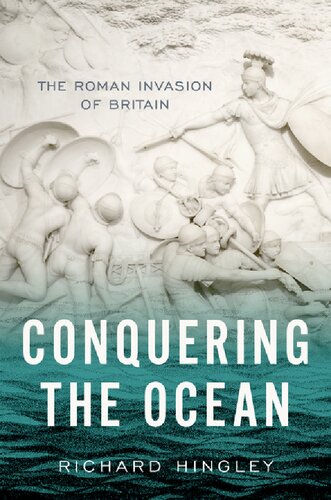

Most ebook files are in PDF format, so you can easily read them using various software such as Foxit Reader or directly on the Google Chrome browser.
Some ebook files are released by publishers in other formats such as .awz, .mobi, .epub, .fb2, etc. You may need to install specific software to read these formats on mobile/PC, such as Calibre.
Please read the tutorial at this link: https://ebookbell.com/faq
We offer FREE conversion to the popular formats you request; however, this may take some time. Therefore, right after payment, please email us, and we will try to provide the service as quickly as possible.
For some exceptional file formats or broken links (if any), please refrain from opening any disputes. Instead, email us first, and we will try to assist within a maximum of 6 hours.
EbookBell Team

5.0
98 reviewsWhy did Julius Caesar come to Britain? His own account suggests that he invaded to quell a resistance of Gallic sympathizers in the region of modern-day Kent -- but there must have been personal and divine aspirations behind the expeditions in 55 and 54 BCE. To the ancients, the Ocean was a body of water that circumscribed the known world, separating places like Britain from terra cognita, and no one, not even Alexander the Great, had crossed it. While Caesar came and saw, he did not conquer. In the words of the historian Tacitus, "he revealed, rather than bequeathed, Britain to Rome." For the next five hundred years, Caesar's revelation was Rome's remotest imperial bequest.
Conquering the Ocean provides a new narrative of the Roman conquest of Britain, from the two campaigns of Caesar up until the construction of Hadrian's Wall across the Tyne-Solway isthmus during the 120s CE. Much of the ancient literary record portrays this period as a long march of Roman progress but recent archaeological discoveries reveal that there existed a strong resistance in Britain, Boudica's short lived revolt being the most celebrated of them, and that Roman success was by no means inevitable. Richard Hingley here draws upon an impressive array of new information from archaeological research and recent scholarship on the classical sources to provide a balanced picture of the military activities and strategies that led to the conquest and subjugation of Britain. Conquering the Ocean is the fullest picture to date of a chapter in Roman military history that continues to captivate the public.